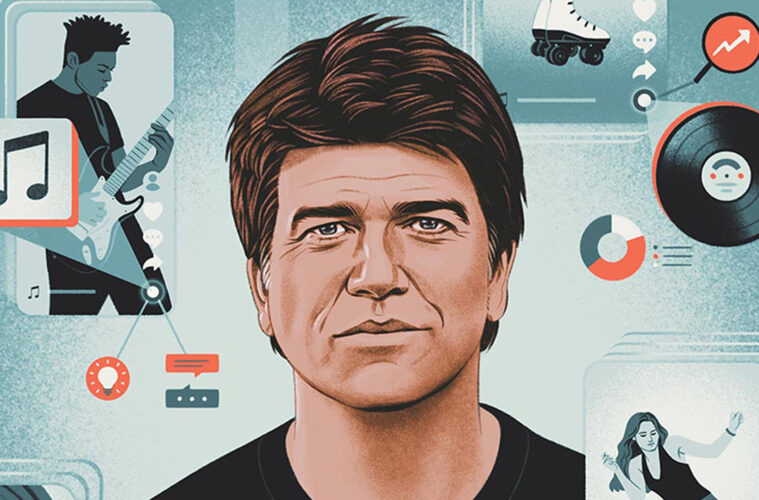Ole Obermann ’93 leads music business development at TikTok.
Ole Obermann’s love of music bloomed in childhood, while his father made breakfast. “Dad had a great vinyl collection — I remember him playing Hotel California and The White Album, ” Obermann ’93 recalls.
At 12, Obermann got together with some kids who lived on his block on Long Island, N.Y., and formed a heavy metal band. During college, he was an on-air DJ at WRCU and also helped with programming. Record companies sent the station albums to play,
giving Obermann his first glimpse into how the music business worked.
Today, Obermann is vice president and global head of music business development and intellectual property rights for ByteDance, the parent company of TikTok. The short-form video platform is the latest digital entity to reorient the music business.
More than a billion people use TikTok every month, and they watch videos from a feed that is customized for their interests by the company’s algorithm. Users often discover new music through song clips that creators pair with videos they post about every imaginable subject, from cooking to Tai Chi.
Obermann’s first job in the music business was at Bertelsmann/RCA Records, where he was a product manager for jazz and classical releases. The company was still focused on selling CDs at stores, but digital music was beginning to catch on. After earning an MBA at Northwestern University’s Kellogg School of Management — he majored in international relations at Colgate — Obermann served as a vice president at a Silicon Valley company that offered digital downloads. He later moved to Sony Music Entertainment and then Warner Music Group, where he was chief digital officer.
At TikTok, where he has worked for four years out of the London office, Obermann negotiates contracts with record labels and music publishing companies to acquire the rights to make their music available on TikTok. He works with artists and attends concerts, but those staples of the business are less important these days.
“Music scouts now spend as much time on TikTok to see who to keep an eye on as they do in clubs watching live music,” he says. Last year, about 50 artists were signed to record deals after their music first caught on with fans on TikTok, he says. “The barrier to entry is almost zero now. TikTok is giving everyone a chance to have a voice.”
Sites like TikTok have also made the process of composing music more interactive. Many artists ask for feedback on TikTok and use the comments posted by viewers to retool their songs, Obermann says.
TikTok’s audience is dominated by young people, but sometimes the “new” music they discover there is actually old. In 2020, a skateboarder used Fleetwood Mac’s 1977 song “Dreams” in a video that went viral. As a result, the song was played on streaming services more than 8 million times in one week. “Young people discovered Fleetwood Mac, and they liked it,” Obermann says — just as he did in his parents’ kitchen so many years ago.

